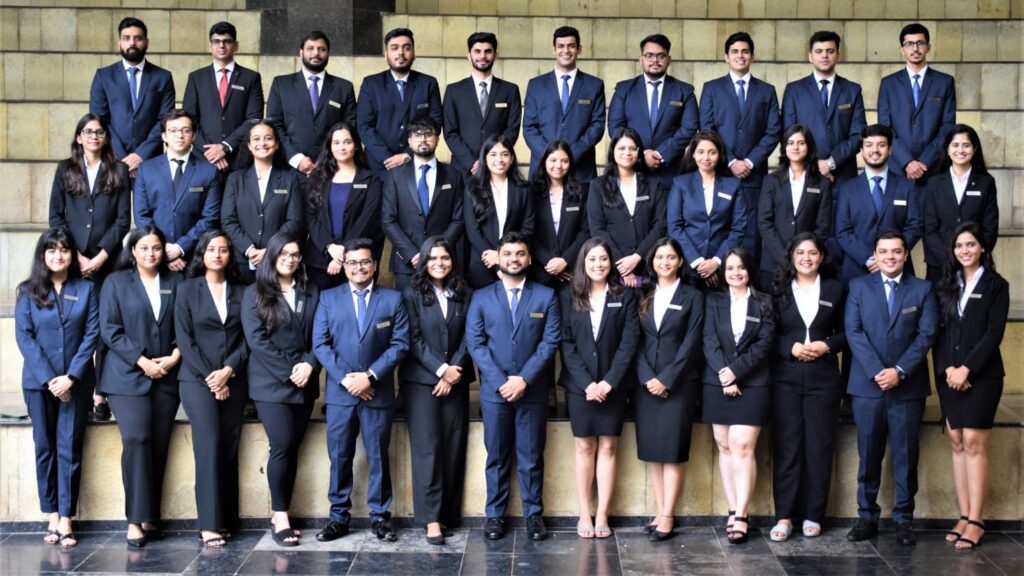Navigating the journey from Campus to Corporate: Industry Ready in the VUCA world “In the past, people were educated, and learned job skills, and that was enough for a lifetime. Now, with technology changing rapidly and new job areas emerging and transforming constantly, that’s no longer the case,” says Sundar Pichai.
The world of work is experiencing transformation due to rapid changes in technology use, automation, green transition, and diversity. Pichai believes Artificial Intelligence (AI) will be essential in shaping future workspaces. He says, “….AI will impact all industries, and every product in every company will feel its influence”. The changing nature of work and the evolution of AI indicates that future jobs will be complex and versatile. India Skills Report (ISR) 2023 indicates a shift in the employability trends as the world of work evolves faster than the workforce.
Globalization, technological developments, automation, changes in consumer behaviour, and widespread remote working patterns are rapidly changing the “how” and “where” we work. It is reshaping the labour market and creating an unprecedented need for reskilling and upskilling. The World Economic Forum’s Future of Jobs Report predicts that over 60% of workers will need retraining between now and 2027. However, only half of these workers have access to adequate training opportunities.
As the work context evolves dynamically, so does the skills landscape and talent distribution across the globe. These contextual changes question the basic assumption underlying the concept of Industry readiness. The conventional definition of industry readiness means having the proper knowledge, skillset, and personal attributes to become employed and stay productive in current industries. Industry-ready is said to improve employability and the person-job fit index. However, as the work context evolves, it becomes apparent that one can only partially be ready. Industry-ready is an ever-evolving state of learning orientation that graduates must adapt to stay relevant. The concept orients towards future needs, and recruiters worldwide need help matching this demand’s speed and scale.
Coursera 2023 Global Skills Reports suggest strong correlations between higher skill proficiency and economic advances like human capital potential and innovation. Notably, the combined Average GDP per Capita of countries where learners have demonstrated cutting-edge proficiency scores is roughly four times higher than that of countries where learners are falling behind in skill proficiencies. India’s journey towards becoming a global economic powerhouse depends on the untapped potential of its skilled workforce. However, as per the Global Skills Index 2022 released by Coursera, India’s ranking has slipped four places to 68th. A Mercer I Mettl study of India’s Graduate Skill Index 2023 indicated that 45% of Indian graduates who apply for jobs are employable, and 48% of graduates applying for AI/ML roles are job-ready. This acute skill gap needs urgent attention before graduates seek employment opportunities.
“We need to focus on making lightweight, continuous education widely available. This is just as crucial to making sure that everyone can find opportunities in the future workplace”, Sundar Pichai.
At KJSIM, we offer diverse and ongoing opportunities to our students to be future-ready:
1. Students get an opportunity to engage with our illustrious alums. Senior alums act as mentors to the student mentees, which enables them to get a peep into the real-world work context. The interaction could be over mock Group discussion or one-on-one personal interview sessions and feedback.
2. Students get hands-on experience on Capstone projects and Consultancy assignments to get hands-on experience in a work context, experience client-facing opportunities, and learn to manage client expectations.
3. The students develop self-awareness through assessment and develop insights into their competencies. They are encouraged to take charge of their personalized developmental journey to be Day 1 Industry Ready.
4. The academic curriculum has a benchmark with the leading management institutes of the world. The institute strives to offer management education through innovative pedagogy, blending classroom interaction, peer-to-peer learning, case-based approach, real-world assignments, simulations, and industry interface.
5. Faculty mentors seek academic rigour by integrating classroom learning with geopolitical and business developments in India and abroad through weekly readings. Students are encouraged to participate in weekly debates with their faculty mentors on contemporary issues to enhance their general awareness.
6. Students can undertake online certifications or attend workshops facilitated by veterans at the institute.
7. KJSIM has a state-of-the-art sports infrastructure, which students can choose from, such as Athletics, Cricket, Lawn tennis, Badminton, and Squash, to achieve overall mind–body well-being.
K J Somaiya Institute of Management was founded with the belief that modern education should be rooted in strong cultural values. KJSIM is intensely indigenous at its core and contemporary in its approach towards curriculum. We welcome students to navigate the next level of their lives and explore a different version of them at KJSIM. Join hands with us in the quest to be Industry-ready.
Admissions are open at K J Somaiya Institute of Management for MBA (With Major and Minor), MBA in Healthcare Management, and MBA in Sports Management for the batch of 2024-26. For application submissions or further information, please click here.
